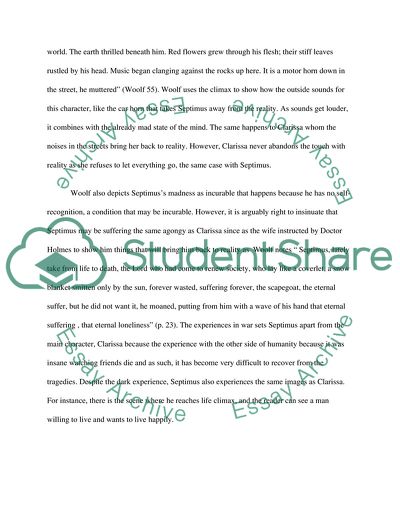Cite this document
(“A Double - Insanity and Suicide because of War Experience by Virginia Essay - 13”, n.d.)
A Double - Insanity and Suicide because of War Experience by Virginia Essay - 13. Retrieved from https://studentshare.org/literature/1699022-writers-choice
A Double - Insanity and Suicide because of War Experience by Virginia Essay - 13. Retrieved from https://studentshare.org/literature/1699022-writers-choice
(A Double - Insanity and Suicide Because of War Experience by Virginia Essay - 13)
A Double - Insanity and Suicide Because of War Experience by Virginia Essay - 13. https://studentshare.org/literature/1699022-writers-choice.
A Double - Insanity and Suicide Because of War Experience by Virginia Essay - 13. https://studentshare.org/literature/1699022-writers-choice.
“A Double - Insanity and Suicide Because of War Experience by Virginia Essay - 13”, n.d. https://studentshare.org/literature/1699022-writers-choice.


